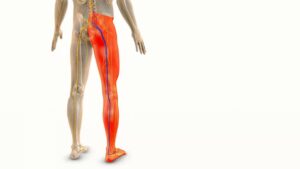Walking is often overlooked as “real” exercise, dismissed as too gentle or simple to make a meaningful difference to our health. Yet mounting scientific evidence reveals that this most natural of human movements is one of the most powerful tools we have for improving both physical and mental wellbeing.
At Godalming Physio, we see firsthand how incorporating regular walking transforms our patients’ lives. Here’s what the latest research tells us about why every step truly counts.
The Physical Health Revolution
Cardiovascular Benefits That Save Lives
Recent research has shown that the cardiovascular benefits of walking are more profound than previously understood. Simply converting a 14-minute daily stroll into a seven-minute brisk walk has been associated with a 14% reduction in heart disease according to analysis of over 450,000 adults.
The Step Count Sweet Spot
You don’t need to chase the often-quoted 10,000 steps to see significant health improvements. Every 1,000 steps added led to a 15% reduction in all-cause mortality, while 500-step increments dropped CV mortality risk by 7%. Even more encouraging, benefits begin at just 2,400 steps daily, making walking accessible to virtually everyone regardless of current fitness level.
Immune System Strengthening
Perhaps one of the most practical benefits: those who walked at least 20 minutes a day, at least 5 days a week, had 43% fewer sick days than those who exercised once a week or less. And if they did get sick, it was for a shorter duration with milder symptoms.
Strength and Metabolic Benefits
Walking isn’t just about cardiovascular health. Interval walking training is efficacious in improving physical fitness and muscle strength, meaning alternating between faster and slower walking speeds can provide strength-building benefits comparable to more intensive exercise forms.
The Mental Health Transformation
Depression and Anxiety Relief
The mental health benefits of walking are backed by robust scientific evidence. Walking had an overall positive effect on remitted depressive and anxiety symptoms when compared with inactive controls, with effects comparable to other forms of physical activity.
Numerous studies indicate a link between walking and reduced anxiety and depression. Aside from the release of endorphins that promote calm, exercise gives us a sense of control over how we’re feeling and what we’re doing for our health.
Nature’s Added Bonus
When walking takes place outdoors, particularly in natural settings, the benefits multiply. Nature walk effectively improve mental health, positively impacting depression and anxiety according to systematic reviews, with additional benefits including stress reduction and improved cognitive function.
The Social Connection Factor
Walking groups are effective and safe with good adherence and wide-ranging health benefits. Walking with others for one or two days per week can have enormous benefits, combining physical exercise with positive social interactions to improve mood and self-esteem.
Why Walking Works So Well
Accessibility and Sustainability Unlike many forms of exercise, walking requires no special equipment, gym membership, or significant time blocks. It’s naturally scalable – you can start with a 5-minute walk around the block and gradually build to longer distances.
Low Impact, High Reward Walking is a natural, low-impact form of exercise that can yield notable improvements in physical fitness, making it suitable for people with joint issues, those recovering from injury, or anyone looking for exercise that works with their body.
Cumulative Benefits The beauty of walking lies in its cumulative nature. Each walk builds upon the last, creating lasting physiological adaptations. Your cardiovascular system becomes more efficient, your muscles stronger, and your mental resilience greater.
The Physiotherapy Perspective
As physiotherapists, we observe several key advantages that make walking uniquely beneficial:
Functional Movement Patterns – Walking reinforces the natural movement patterns your body is designed for, helping to correct imbalances caused by sedentary lifestyles.
Progressive Loading – Walking allows for natural progression in terms of distance, speed, and terrain difficulty, making it ideal for rehabilitation and long-term health maintenance.
Whole-Body Integration – While it might seem like walking only uses your legs, it actually engages your entire body for stability, balance, and alignment.
Making the Science Work for You
Start Where You Are The research shows benefits begin at just 2,400 steps daily. If you’re currently sedentary, this might be your initial target.
Consistency Over Intensity The studies consistently show that regular, moderate walking trumps occasional intense efforts. Try walking 3 days a week for 10-30 minutes as a starting point.
Consider Your Environment Given the additional mental health benefits of nature walking, try to incorporate outdoor routes when possible. Living in Godalming, we’re blessed with beautiful walking opportunities that maximize these benefits.
The Evidence Is Clear
The scientific evidence overwhelmingly supports what many of us intuitively know: walking is good for us. But the research reveals it’s even better than we might have imagined, with benefits extending from cardiovascular health and immune function to mental wellbeing and social connection.
At Godalming Physio, we’ve seen these research findings play out in real life countless times. Patients who embrace regular walking consistently report feeling stronger, more energetic, and mentally clearer. They recover faster from injuries, manage chronic conditions more effectively, and simply feel better in their daily lives.
The best part? You can start experiencing these benefits today. Your next walk – whether it’s around the block or along the River Wey – is the beginning of measurable improvements to your health and wellbeing.
Ready to make walking a cornerstone of your health routine? Contact Godalming Physio to discuss how we can help you develop a walking program tailored to your specific needs and goals.


